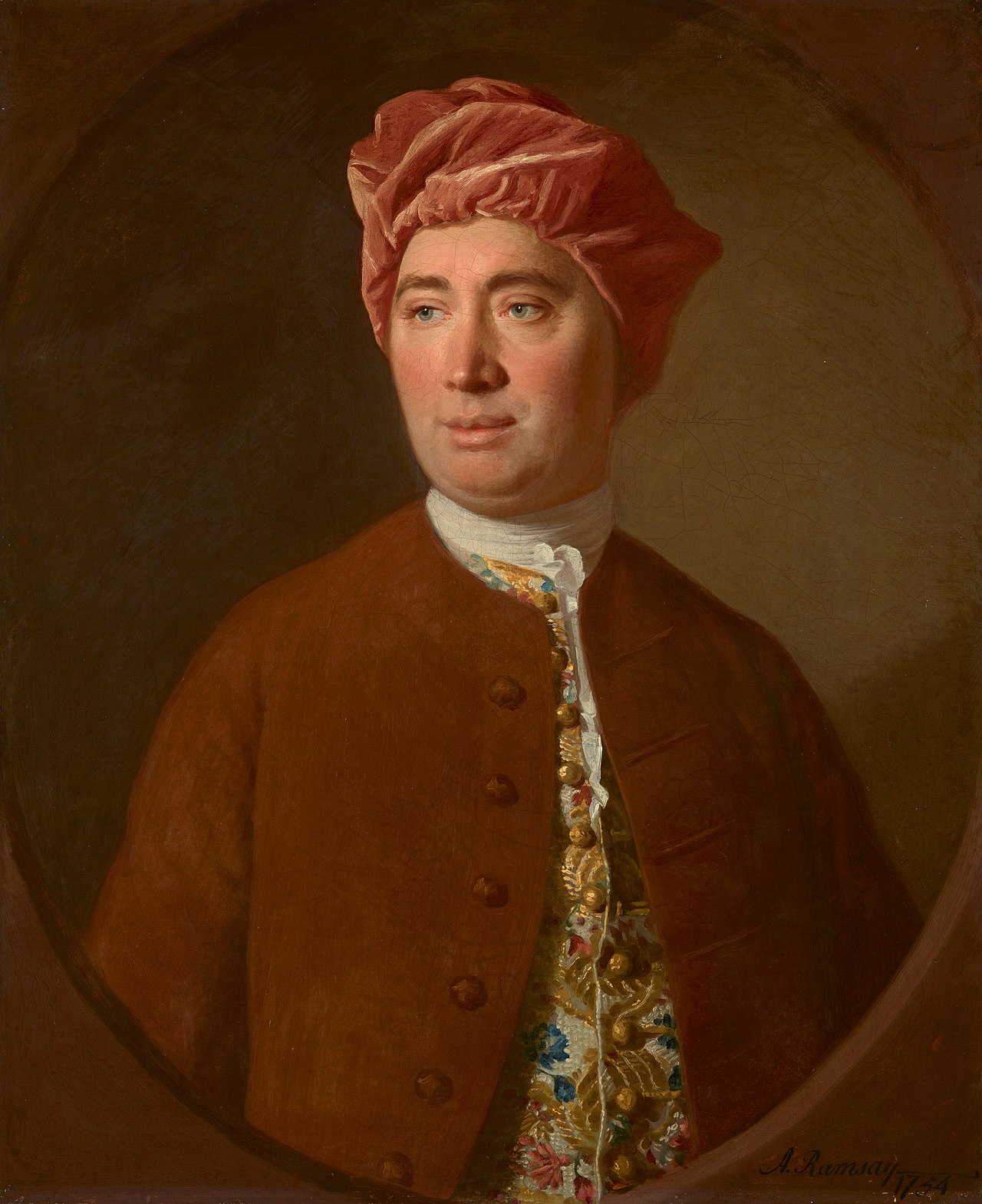David Whom? This is George Floyd Tower now, nigga.
Edinburgh University has renamed the David Hume tower over the Scottish Enlightenment philosopher’s comments on race.
It follows a petition from 2,000 students in the wake of the Black Lives Matter movement and protests over the killing of George Floyd.
The decision, taken by the university’s Equality and Diversity Committee, will be temporary until a full review is completed.
“The interim decision has been taken because of the sensitivities around asking students to use a building named after the 18th century philosopher whose comments on matters of race, though not uncommon at the time, rightly cause distress today,” the university said in a statement.
From the start of this academic year the building will be known as 40 George Square.
…
An online petition to rename the tower has so far gained 1,800 signatures.
Founder Elizabeth Lund wrote: “Nobody is demanding we erase David Hume from history.
“However, we should not be promoting a man who championed white supremacy. That is mutually exclusive with the goal of reducing the harm caused by racism at Edinburgh University to students of colour.
“We can take Hume’s writings and learn about them in context, but there is no reason the tallest building on campus should be named after him.”
Historian Dr Felix Waldmann, Fellow at Christ’s College Cambridge and David Hume Fellow at Edinburgh University in 2016, recently called for the tower to be renamed in an article for The Scotsman.
Dr Waldmann revealed evidence that Hume had been involved in the slave trade in his 2014 book Further Letters of David Hume.
Hume also wrote in a 1753 essay, Of National Characters, that “negros” are “naturally inferior to the whites”.
While these were common views and behaviour at the time, Dr Waldmann argued that Hume was sufficiently intelligent and wealthy to be able to denounce racism and the slave trade if he wished.
This is another one of those things where you just don’t even know how you can process what is happening in front of you.
David Hume
You might not know who David Hume is, because your school was too busy teaching you about people like George Floyd. It is uncontroversial to say that Hume is one of the most important Scotsmen in history.
Under “David Hume,” the Stanford Encyclopedia of Philosophy begins with, “The most important philosopher ever to write in English.”
I think it is fitting that we should think about him this week, given that he is being erased from history. As they are taking our ancestors from us, blotting out our heroes, the best thing any of us can do is remember them. There is a reason they want us to forget.
Hume probably would have had quite a bit to say about the factors driving university officials to rename his building.
David Hume (/hjuːm/; born David Home; 7 May 1711 NS (26 April 1711 OS) – 25 August 1776) was a Scottish Enlightenment philosopher, historian, economist, librarian and essayist, who is best known today for his highly influential system of philosophical empiricism, skepticism, and naturalism. Beginning with A Treatise of Human Nature (1739–40), Hume strove to create a naturalistic science of man that examined the psychological basis of human nature. Hume argued against the existence of innate ideas, positing that all human knowledge derives solely from experience. This places him with Francis Bacon, Thomas Hobbes, John Locke, and George Berkeley, as a British Empiricist.
Hume argued that inductive reasoning and belief in causality cannot be justified rationally; instead, they result from custom and mental habit. We never actually perceive that one event causes another, but only experience the “constant conjunction” of events. This problem of induction means that to draw any causal inferences from past experience it is necessary to presuppose that the future will resemble the past, a presupposition which cannot itself be grounded in prior experience.
An opponent of philosophical rationalists, Hume held that passions rather than reason govern human behaviour, famously proclaiming that “Reason is, and ought only to be the slave of the passions”. Hume was also a sentimentalist who held that ethics are based on emotion or sentiment rather than abstract moral principle. He maintained an early commitment to naturalistic explanations of moral phenomena, and is usually taken to have first clearly expounded the is–ought problem, or the idea that a statement of fact alone can never give rise to a normative conclusion of what ought to be done.
Hume also denied that humans have an actual conception of the self, positing that we experience only a bundle of sensations, and that the self is nothing more than this bundle of causally-connected perceptions. Hume’s compatibilist theory of free will takes causal determinism as fully compatible with human freedom. His views on philosophy of religion, including his rejection of miracles and the argument from design for God’s existence, were especially controversial for their time.
Hume influenced utilitarianism, logical positivism, the philosophy of science, early analytic philosophy, cognitive science, theology, and many other fields and thinkers. Immanuel Kant credited Hume as the inspiration who had awakened him from his “dogmatic slumbers.”
Here’s a short YouTube video about his philosophy.
Here is lecture from the great Arthur F. Holmes about Hume.
You don’t need to go deep into it, but as this man is being erased, I think we who wish to keep the torch of Western thought and identity burning through this darkest of ages should be able to give a brief summary of his most well-known positions.
For those who wish to go deeper, the full text of his seminal work, “A Treatise of Human Nature,” can be downloaded in various formats at Library Genesis.
George Floyd
As the reader now has a basic idea of who David Hume is, we can compare him to George Floyd, who the leadership of Edinburgh University believes is a more important historical figure than Hume.
In comparing Hume to Floyd, we certainly begin to wonder if Hume’s claim that “negroes are naturally inferior to the whites” is truly all that outrageous. I think we will absolutely find that George Floyd is inferior to David Hume.
George Floyd was not well known before his death. However, those who did know him would have known him as a violent criminal and an abuser of hard drugs.
Firstly, it should be noted that George Floyd was not Scottish. He was an African-American, and spent most of his life in Houston, Texas. The first arrest that journalists have been able to dig up was in 1998, when Floyd was 25. He was arrested and jailed for aggravated robbery using a gun, and served ten months. In April of 2002, he did 30 days for criminal trespassing. In October of 2002, he was sentenced to 8 months for possession of cocaine. He was sentenced to ten months for cocaine in 2005.
In 2009, he was sentenced to five years in prison for a 2007 robbery, where he pressed a gun against the belly of a pregnant woman, threatening to kill the unborn child, after he and another man broke into her home. Floyd searched the home for drugs and money while his accomplice watched the woman. The accomplice smashed her head with the butt of his pistol. A toddler was in the home while the robbery took place. There were no drugs in the home, so the pair stole the woman’s jewelry and cellphone. The woman has not been in the media, but her name was Angel Henriquez, suggesting that she was not black.
After getting out of prison in 2014, he moved from Houston to Minneapolis, where he worked as a bouncer. Although there is no record of arrest between 2014 and 2020, he was attempting to pass off a fake $20 bill when he was arrested by Derek Chauvin and other officers of the Minneapolis police force in June of this year.
Floyd died in police custody after resisting arrest. His autopsy showed that he had recently used both methamphetamines and fentanyl, which caused him to die of an overdose. Videos of the arrest, which have been leaked, show clearly that he was high on drugs, and experiencing a freakout.
Despite this, the Jewish media lied about the death, and claimed that he had been murdered by the police because they hated the color of his skin. This has led to months of rioting in America, with protests spreading to Europe and elsewhere, with the protesters and rioters continually repeating the ridiculous and obviously false claim not only that Floyd was murdered, but that he was murdered because the arresting officers hated his skin color.
Who is the More Important Figure in Scottish History: Hume or Floyd?
It is certainly up to the people of Scotland whether they decide he is a more important figure in their history than David Hume. Sadly, however, there is no room for this type of discussion in Scotland or elsewhere in the Western world. If some Scottish person were to say, “I believe that Hume is more important to the history of Scotland than Floyd,” he would almost certainly be subjected to having his life destroyed. The media would spread rumors about how he hates the skin color of black people.
However, though I am not Scottish, I am personally willing to say this: I think that David Hume is a more important figure in Scottish history than George Floyd, and I feel it is very sad that a great figure in Scottish history is having his legacy erased by a drug-addicted black criminal whose primary legacy before his death was threatening to shoot an unborn child through a woman’s stomach.
What’s more: I think that all Scottish people, and in fact all people of the world, should be allowed to hold that view and openly express it without fear of having their lives destroyed (or even being subjected to physical violence). Of course, those people who believe that George Floyd has more importance in history than David Hume should also be able to express that view. However, what we have done in 2020 is create a society of absolute fear, where anyone who holds a view different than that of the mainstream media is subjected to menacing and intimidation that makes the political persecutions of the 20th century look quaint.
It is difficult to imagine that this situation is sustainable.
In closing, I would just like to say that we should always try to find a way to view the glass half full, and in this case, I think that it is safe to say that Hume, a man who wrote extensively about the moral value of aesthetics, would not want a building this ugly named after him.
Hume believed that there was a link between beauty and deformity and vice and virtue. Looked at through that lens, it is more fitting that this building be named after George Floyd than David Hume.
 Daily Stormer The Most Censored Publication in History
Daily Stormer The Most Censored Publication in History







